General Auto Repair: Everything You Need to Know
In this article, we will cover everything you need to know about general auto repair. Whether you are a car owner looking to arm yourself with knowledge or an aspiring mechanic aiming to deepen your understanding of the subject, this comprehensive guide will provide valuable insights into the world of auto repair.
Importance of Regular Maintenance
Regular maintenance is crucial to ensuring the longevity and optimal performance of your vehicle. By adhering to a routine maintenance schedule, you can identify and address potential issues before they escalate into costly repairs. Here are some key maintenance tasks that should be performed regularly:
- Oil Changes: Regular oil changes help lubricate the engine parts and prevent wear and tear.
- Tire Rotation and Alignment: Rotating your tires and ensuring proper alignment can extend the lifespan of your tires and improve fuel efficiency.
- Brake Inspections: Regular brake inspections can help prevent brake failure and ensure your safety on the road.
- Fluid Checks: Checking and topping up essential fluids such as coolant, brake fluid, and transmission fluid is vital for the proper functioning of your vehicle.
Common Auto Repairs
Despite regular maintenance efforts, certain components of your vehicle may still require repairs. Here are some common auto repairs that you may encounter:
- Brake System Repairs: Brake pads, rotors, and calipers may need to be replaced due to wear and tear.
- Engine Repairs: Issues such as a faulty spark plug, worn-out belts, or a malfunctioning fuel pump can affect engine performance.
- Transmission Repairs: Transmission fluid leaks, slipping gears, and unusual noises are indicators of potential transmission problems.
- Electrical System Repairs: Malfunctioning lights, dead batteries, and faulty wiring are common electrical issues that require attention.
Signs Your Vehicle Needs Repair
Being alert to signs of potential vehicle issues can help you address them promptly. Here are some common indicators that your vehicle may need repair:
- Strange Noises: Unusual sounds such as squealing, grinding, or knocking can signal mechanical problems.
- Warning Lights: Dashboard warning lights such as the check engine light, ABS light, or battery light indicate system malfunctions.
- Vibrations: Vibrations while driving could be a sign of tire issues, suspension problems, or wheel misalignment.
- Fluid Leaks: Puddles of fluid under your vehicle can be indicative of leaks from the engine, transmission, or cooling system.
DIY vs. Professional Repairs
While some minor repairs and maintenance tasks can be performed by DIY enthusiasts, complex issues are best left to professional auto technicians. Attempting to tackle intricate repairs without the necessary expertise can result in further damage and safety risks. Consulting a qualified mechanic ensures that repairs are conducted accurately and efficiently.
Choosing the Right Auto Repair Shop
When selecting an auto repair shop for your vehicle servicing needs, consider the following factors:
- Certifications: Look for ASE (Automotive Service Excellence) certified technicians who possess the expertise to handle a wide range of auto repairs.
- Reputation: Check online reviews and seek recommendations from family and friends to gauge the reputation of the auto repair shop.
- Warranty: Opt for a repair shop that offers warranties on parts and services, ensuring quality and accountability.
- Facilities: Choose a repair shop equipped with state-of-the-art tools and diagnostic equipment to provide precise and efficient repairs.
By prioritizing regular maintenance, staying vigilant for signs of potential issues, and entrusting complex repairs to professionals, you can ensure the longevity and dependable performance of your vehicle. Investing in quality auto repair services is an investment in the safety and reliability of your vehicle on the road.
